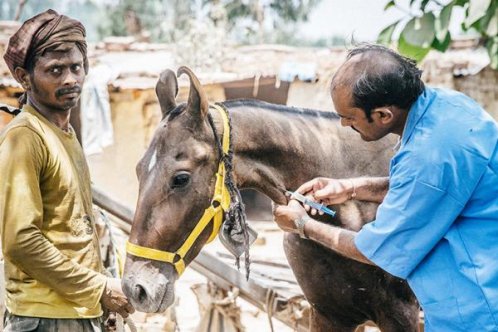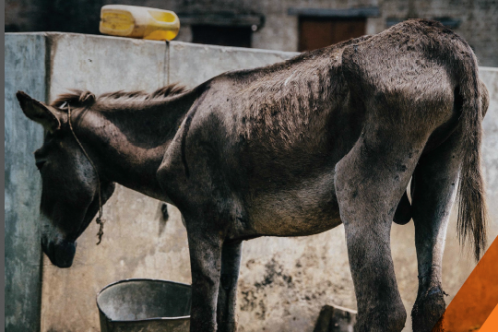Brooke hosted the first ever cross-sector regional brick kiln advocacy event.
Professionals search
This Policy exists to ensure that anyone representing Brooke demonstrates good practice in relation to animal welfare, and conducts themselves in a manner commensurate with their role as ambassadors for the organisation and animal welfare advocates.
It's important that people interacting with equine animals have a sufficient level of knowledge, skill and confidence in executing safe and welfare-friendly handling and restraint techniques. We believe equine animals can and should be managed without fear, force or harmful punishment.

To make a lasting difference to future generations of animals, our veterinary teams work to strengthen existing healthcare infrastructures.
We assess the welfare of horses, donkeys and mules using scientifically-validated welfare assessment techniques. Our findings are used to prioritise our interventions, evaluate the effectiveness of our programmes and engage with communities.
We advocate and campaign to improve the lives of working livestock where we see the gravest issues, always using evidence to make our case. We raise their visibility at every level, from national government to UN agencies. We work in partnership, we mobilise, we lobby and we learn from others to bring about long term change.

This manual offers insights and practical advice to help understand animal welfare issues that affect horses, donkeys and mules working in developing countries.
Our work with horses, donkeys and their owners in Petra Park in Jordan is a clear example of how our continually evolving approach to animal welfare is making a long-term impact and changing the way people think about and treat their animals
This manual is a guide to improving the welfare of working animals through collective action, while taking into account the context of different target populations in terms of welfare risks to working animals and the vulnerability of their owners’ livelihoods.
On 16 November 2015, international and national policy stakeholders, researchers and civil society organisations gathered in London for a Brooke-hosted policy conference highlighting the multiple contributions of livestock to livelihoods and national economies.
